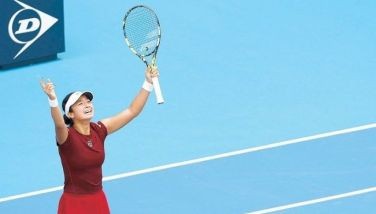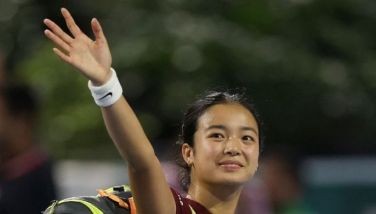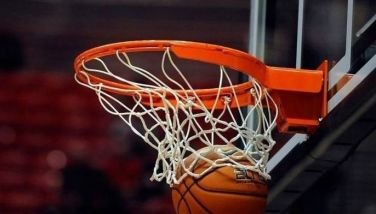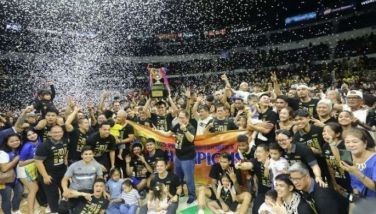Olympic treasure hunting a passion for US-based Pinoy

LONDON – You might call it an addiction but Louie Barbosa, a Filipino who migrated to the US in 1984, is simply in love with the consuming hobby of collecting Olympic memorabilia.
Barbosa, 47, isn’t just into trading Olympic pins, easily the most popular street “sport” among athletes, delegates and fans at either the Summer or Winter Games. He collects even participants’ medals and has paid as much as $2,000 for Olympic torches dating back to 1928 and 1932. A prized possession is a Monaco badge given by Prince Albert himself during the 2004 Athens Games.
What makes the hobby almost a life-long commitment is the thrill of the hunt. At the 30th Olympics here, Barbosa flew in with sons Marcus, 21, and Christian, 19, to buy Olympic memorabilia. He came with $12,000 to burn.
Usually, pins are only traded on the Olympic block, meaning the unwritten policy is nobody sells. But Barbosa, originally from Las Piñas, said several Eastern European countries put their pins, badges and collectors’ items up for sale despite the ban. Before the Games ended in London, Barbosa added a huge and intricately designed Russian Olympic emblem to his pile for a tidy sum.
Barbosa said he started collecting Olympic memorabilia at the Los Angeles Olympics in 1984. He has since gone to 12 Olympics, skipping only the Albertville Winter Games in 1992. In his Anaheim home, Barbosa has lined the walls and shelves of three rooms with his Olympic collection. His haul includes over 20,000 pins and badges and about 200 participants medals the oldest of which was issued in 1924.
During a visit to Manila in 2005, Barbosa said he paid P250 for a Philippine delegation pin from the 1936 Los Angeles Olympics to an antique dealer in a SM Megamall store. That had to be the best bargain he ever made. Barbosa said he tries to visit home every year.
Barbosa said he is able to enter the Athletes Village in every Olympics because of his close relations with high-ranking sports officials from Albania and Tajikistan. “It all began in 1984 when I met officials from Albania and Tajikistan and drove them around town,” he said. “I’ve developed a close friendship with them and now in every Olympics, they give me accreditation as a representative of their delegation.”
When not pursuing his hobby, Barbosa manages two care homes in Montrose with wife Luz Salandanan of Manila. The Barbosas were married in the US in 1991. Their youngest is daughter Lalaine, 16.
Barbosa was also in London to check what he could get in the market for a rare 1984 Saudi Arabian badge and other items in his trading stock. He’s such a passionate collector that he calls the place where he lives the “Olympic Guest House” and his ID card describes him as a “collector of Olympic memorabilia.” Pictured in his calling card is an IOC badge worn from a meeting in Tokyo in 1958.
Collectors said the first tradable Olympic souvenirs are colored cardboard badges that were distributed to distinguish athletes from others in 1896. Metal pins surfaced in 1912 and in the 1980s, pin trading became almost an Olympic tradition.
Pin traders lay out their merchandise on placemats, sheets and blankets for easy inspection. In London, they camped out on long open-air walkways and waited for passers-by to examine the goods and offer a swap. Their favorite hang-out was just outside the exit of the media entrance leading to buses that took writers and broadcasters to various Olympic venues.
Of the Olympics he has witnessed, Barbosa said he’ll never forget Barcelona in 1992 when the US “Dream Team” played.
- Latest
- Trending





























